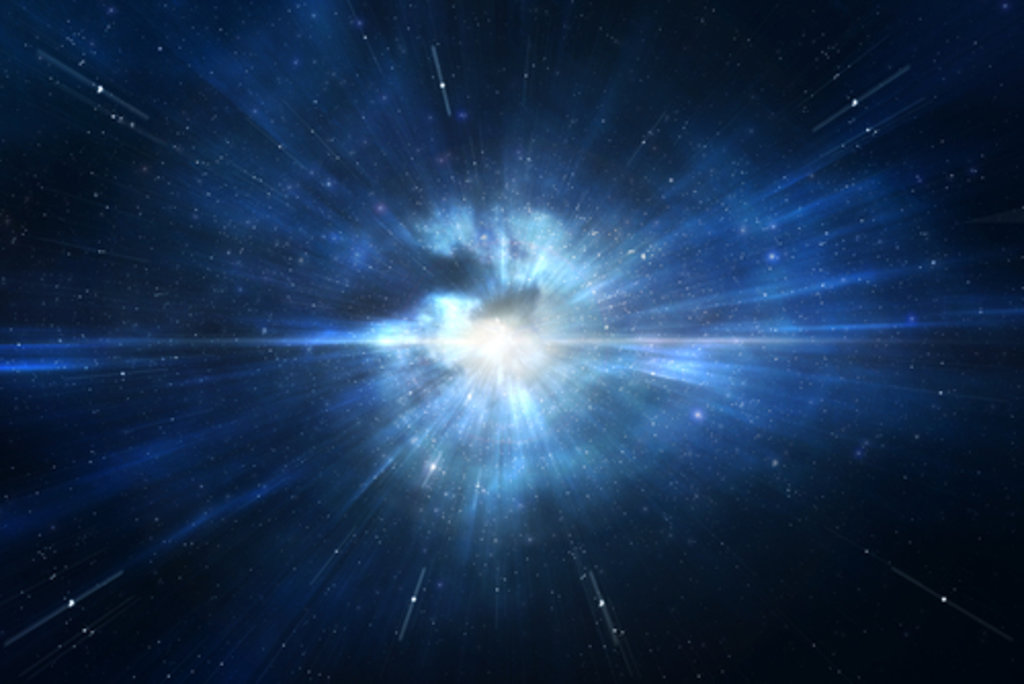Spiritual Sunday – New Year’s Eve
As we look ahead to a new year, how appropriate that today’s lectionary reading is the magnificent passage that opens the Book of John. Delaware poet Jeanne Murray Walker takes inspiration from the Biblical passage in “In the Beginning Was the Word,” associating the birth of language and poetry with the birth of creation. As she sees it, the same divinity runs through all of them.
For Walker, creation is chaos, and the earth, once a “ball of white hot gasses,” is like the poetic impulse. Anything is possible until the poem finally settles into an orbit amidst stars, planets and moons into which we project our human emotions:
It was your hunch, this world. On the heyday
of creation, you called, Okay, go! and a ball
of white hot gasses spun its lonely way
for a million years, all spill and dangerous fall
until it settled into orbit. And a tough
neighborhood, it was, too. Irate Mars,
and sexually explicit Venus, the kerfluff
of a moody moon, and self-important stars.
The poetic process is as crazy as biological proliferation, with the arrival of blossoms representing new vulnerabilities. While flowering may appear to be “barely regulated damage”–the splitting invites invasions by insects–it instead leads to wondrous new creations that ferns can only dream of. Same for animals and for people:
And trees. Think of their endless rummaging
for light, their reckless greening, how flowering
is barely regulated damage. Then birds,
mice, sheep. Soon people, bursting into language.
Creation thinking about itself: our words soaring
like yours through time, dangerous, ordinary words.
I like the combination of “dangerous” and “ordinary” since ordinary words, used poetically, open up new truths. Julia alerted me to the following passage about words in radio interviewer Krista Tippett’s Becoming Wise: An Inquiry into the Mystery and Art of Living:
I know it is possible to speak about our deepest passions and convictions in a way that opens imaginations rather than shuts them down….The world needs the most vivid, transformative universe of words that you and I can muster.
Poet Elizabeth Alexander tells Tippett in an interview,
Here’s what we crave. We crave truth tellers. We crave real truth.
Poet Marie Howe, meanwhile, remembers,
As a child I would read the old Harvard Classics. We had them in our living room. I would pore through these dusty books and try to find language that was adequate in experience, or try to find language that could somehow hold the unsayable.
Walker’s poem asserts that, when Creation thinks about itself, its simple but dangerous words soar through time. Can you imagine a more soaring and transformative use of words than John 1:1-18? Think of John the Baptist and Jesus as poets, channeling the powers of the original creation to transcend what everyone assumes is solid reality. “He was in the world, and the world came into being through him,” John writes:
In the beginning was the Word, and the Word was with God, and the Word was God. He was in the beginning with God. All things came into being through him, and without him not one thing came into being. What has come into being in him was life, and the life was the light of all people. The light shines in the darkness, and the darkness did not overcome it.
There was a man sent from God, whose name was John. He came as a witness to testify to the light, so that all might believe through him. He himself was not the light, but he came to testify to the light. The true light, which enlightens everyone, was coming into the world.
He was in the world, and the world came into being through him; yet the world did not know him. He came to what was his own, and his own people did not accept him. But to all who received him, who believed in his name, he gave power to become children of God, who were born, not of blood or of the will of the flesh or of the will of man, but of God.
And the Word became flesh and lived among us, and we have seen his glory, the glory as of a father’s only son, full of grace and truth. (John testified to him and cried out, “This was he of whom I said, ‘He who comes after me ranks ahead of me because he was before me.'”) From his fullness we have all received, grace upon grace. The law indeed was given through Moses; grace and truth came through Jesus Christ. No one has ever seen God. It is God the only Son, who is close to the Father’s heart, who has made him known.
Don’t underestimate the life force that flows through the universe.


